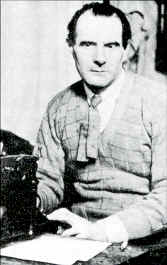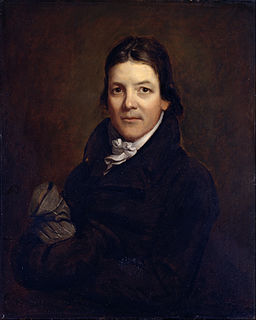A Quote by Jonathan Swift
Physicians ought not to give their judgment of religion, for the same reason that butchers are not admitted to be jurors upon life and death.
Related Quotes
...Only physicians are likely to be regarded as competent to judge the qualifications of potential physicians, so licensing boards in the various states...are typically composed..of physicians,...members of the AMA. The boards, or the state legislatures...give the AMA the power to influence the number of persons admitted to practice (by) lengthy training,...(and) the list of 'approved' schools and hospitals (which) is generally identical with the list issued by the Council on Medical Education and Hospitals of the AMA.
Animals learn death first at the moment of death;...man approaches death with the knowledge it is closer every hour, and this creates a feeling of uncertainty over his life, even for him who forgets in the business of life that annihilation is awaiting him. It is for this reason chiefly that we have philosophy and religion.
Everybody is afraid of death for the simple reason that we have not tasted of life yet. The man who knows what life is, is never afraid of death; he welcomes death. Whenever death comes he hugs death, he embraces death, he welcomes death, he receives death as a guest. To the man who has not known what life is, death is an enemy; and to the man who knows what life is, death is the ultimate crescendo of life.
If I had admitted my guilt, it would have been the same as putting my head on the chopping block - lifetime ban. Death penalty. I spent my entire life on the baseball fields of America, and I was not going to give up my profession without first seeing some hard evidence ... right or wrong, the punishment didn't fit the crime, so I denied the crime.
In the Old Testament, the God of the Prophets never was completely on Israel's side. There was a primitive national religion, but it was always a transcendent God who had judgment first in the House of God. This is the true religion. It has a sense of a transcendent majesty and a transcendent meaning so that that puts myself and the foe under the same judgment.
If I had my life over again I should form the habit of nightly composing myself to thoughts of death. I would practise, as it were, the remembrance of death. There is no other practice which so intensifies life. Death, when it approaches, ought not to take one by surprise. It should be part of the full expectancy of life. Without an ever-present sense of death life is insipid.
It seems to me that one ought to rejoice in the fact of death-- ought to decide, indeed, to earn one's death by confronting with passion the conundrum of life. One is responsible to life: It is the small beacon in that terrifying darkness from which we come and to which we shall return. One must negotiate this passage as nobly as possible, for the sake of those who are coming after us.




































